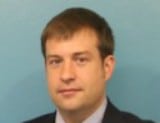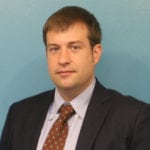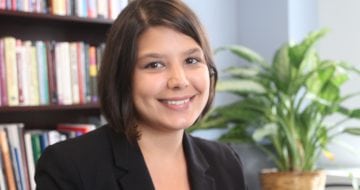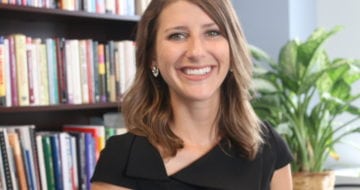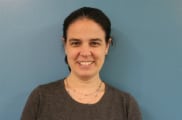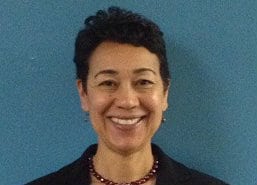When I was in high school, it was very clear that being accepted to a high-quality, four-year college was the ultimate goal, and almost all of the academic focus was placed on getting there. I remember having a good idea of what my academic talents were and where my interests lay, but I didn’t have a clear plan of how these skills could translate into a career, a life after school.
While part of the disconnect between my academic talents and the outside world was simply because I was young, the idea of the workplace and how I would fit into it was an abstraction, something distant that I assumed I would figure out along the way. I could see that I was earning good grades on term papers because of my research and writing skills, and my teachers told me that these skills would be useful in college, but how would those talents be useful once I went out into the real world? Would they? I had no idea.
Looking back, I would have benefited from some sort of early exposure to career pathways or guidance. My research and writing skills absolutely supported academic success, but it wasn’t clear as to how that would help me later. If a student is talented in math, science, or the arts, how does that student have a good sense of what opportunities are available to them once they have to earn a living?
Isn’t high school too early to start thinking about this? Isn’t college the right time for that?
“It absolutely should start in elementary school,” said Kim Reykdal, a school counselor at Olympia High School in Olympia, Washington and a 2016 School Counselor of the Year finalist. “The research shows that as early as fifth grade, kids are making assumptions about their success in school and their futures.” Reykdal believes that just an emerging awareness about career pathways in elementary school can better prepare students for later on in their academic careers.
Last year, Washington adopted a college and career-ready high school diploma, which will require high school students graduating in 2019 and beyond to choose a variety of pathways. “We really take career awareness seriously as a K-12 system, and as students progress through the grade levels, we increase not just the awareness piece in elementary school, but also the information about finding a good career fit,” said Reykdal.
Additionally, Washington state’s High School and Beyond Plan, which was implemented in 2000, helps students, parents, and teachers collaborate to develop student specific career paths. Students develop a plan, and continuously refine and adapt it as they advance and are encouraged to think about how their high school studies match up with a potential career path.
In Reykdal’s school, she believes it’s important to focus on individual students by asking them three basic questions:
- Who am I?
- What would I want to become?
- How do I get there?
While these questions might seem simple, they are important. Some students may have never asked themselves these questions in a serious way. It’s also crucial to ask students those questions in that order, said Reykdal. “If their decisions aren’t being driven by what they think is important, then they’re not going to be happy and be as successful as they would be if they were following their own path.”
Creating programs like these take time and effort, however. “A key piece for whoever is leading the charge, no matter the grade level, is to really reach out to the community and utilize resources that are there,” said Reykdal. It’s also crucial to have buy-in from staff and educators, and for everyone involved “to understand that connection to a student’s future dreams and what they’re doing now.”
Aligning College Studies and Career Advisement
In college, of course, most students are thinking much more carefully about life after school. Many, however, especially those with majors in broad subject areas, wonder what they have to offer the workplace. What careers are immediately applicable to a liberal arts major, and how can colleges help them harness their talents and skills for post-graduation life?
“Some institutions do get pretty creative,” said Jennifer Joslin, Associate Director for Content Development at National Academic Advising Association. Some colleges offer special programs within English or history majors, “to break down the idea that career planning and career development are only for business majors, or engineering majors, or nursing majors, students who have a technical focus right away. These are programs that humanities or social science majors should be taking advantage of as well.”
Joslin also points to successful programs as deliberately and methodically introducing career options to college students as they progress in their academic studies. As a first year student, for example, that may mean being exposed to an advising syllabus, or as a sophomore, the student could attend career center programing to learn about internships or co-op education opportunities that blend academic studies with real-world professional experience. “At any school where career advisement is a part of the process, where students see the complexity of their interest area, that‘s going to be the most successful combination.”
While I think that it would have been helpful to have a better idea of how my academic interests would match up with my career, I think I had a good support system of engaged teachers and parental guidance. Many students, however, are not as fortunate. Many disconnected youth don’t have the supports that I had, and can find themselves lost in the process.
While helping all students decide early on what their talents, interests, and goals are is undoubtedly useful for all students, having access to career advisement as early as possible can be especially useful for disconnected youth, who often struggle with problems outside of school. “In particular for our disengaged kids, part of their struggle is a lack of hope for their future,” said Reykdal. “I really believe that if we can help these students, to help them see a path forward, that will in and of itself help them engage more in their education.”
George Knowles is the Digital Communications Associate at the American Youth Policy Forum.


